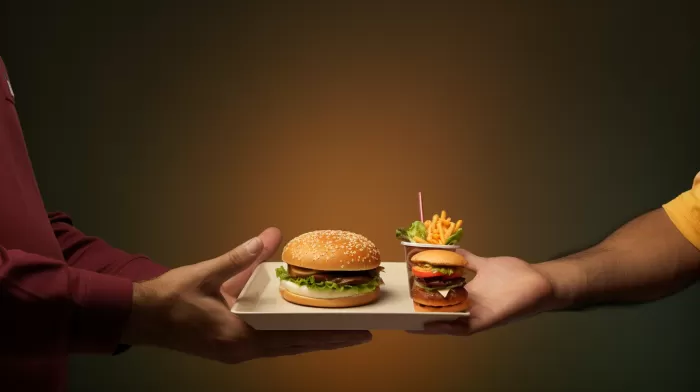Ever find yourself feeling strange or more stressed after eating a meal? Well, it turns out that after every meal, your body releases cortisol – a stress hormone. Over time, too much of this hormone puts you at a higher risk of developing diabetes, heart diseases, anxiety, and depression. But don’t worry, a recent study at Deakin University in Australia discovered a simple way to reduce that cortisol release by over 90 percent. In this article, we’re going to look at how to prevent post-meal cortisol release and protect ourselves from these health risks.
Weight Loss and Cortisol Release
The researchers at Deakin University found that losing weight can significantly lower cortisol release after eating. The adrenal gland is responsible for releasing cortisol as a stress response. When you’re overweight, your body releases more cortisol when under stress. By observing participants in the study after they ate, the researchers found that those who were overweight experienced a 51 percent increase in cortisol levels. In contrast, people with a lower weight only had their cortisol levels increase by about one-tenth of that amount.
According to researcher Anne Turner, this research indicates that the more fat stores our body carries, the more we expose ourselves to increased levels of cortisol after every meal. If overweight and obese individuals have an increase in cortisol every time they ingest food, they’re more likely to develop stress-related diseases. Greater exposure of the body to cortisol may increase our risk of developing cardiovascular disease, type 2 diabetes, depression, and anxiety. So, this gives us one more reason to shed any excess weight.
How To Lose Weight and Lower Cortisol Release
Let’s look at some proven, effective, and healthy ways to lose weight and reduce our cortisol release after meals.
- Eat a Balanced Diet: Maintaining a healthy weight starts with a balanced diet. Aim for meals that include a variety of fruits and vegetables, lean proteins, dairy products, and whole grains. Stay away from added sugars, bad fats, and excessive sodium in processed and packaged foods.
-
Get Regular Exercise: Aim for at least 150 minutes of moderate aerobic activity or 75 minutes of vigorous aerobic activity every week, plus muscle-strengthening exercises twice a week to maintain a healthy weight.
-
Stay Hydrated: Drinking enough water helps you maintain a healthy weight and properly manage cortisol levels. Aim for at least 64 ounces of water per day, and remember to drink more if you’re active.
-
Plan Your Meals: Planning out meals and snacks in advance can help you make healthier food choices and avoid overeating.
-
Get Enough Sleep: Aim for 7 to 9 hours of sleep per night to help regulate cortisol levels and maintain a healthy weight.
-
Practice Stress Management: Incorporate relaxation techniques, such as deep breathing exercises, progressive muscle relaxation, meditation, or yoga, into your daily routine to help manage stress and cortisol levels.
The Benefits of Reduced Cortisol Release
With a consistent focus on weight loss and healthier lifestyle choices, you can reduce your cortisol release after meals and enjoy the following benefits:
- Reduced Risk of Chronic Diseases: Lower cortisol levels mean a reduced risk of developing stress-related diseases such as type 2 diabetes, cardiovascular disease, anxiety, and depression.
-
Enhanced Immune Function: Cortisol suppresses the immune system. So, by lowering your cortisol levels, you could improve your immune function and your body’s ability to fight off illness.
-
Improved Energy: Lower cortisol levels could lead to increased physical and mental energy, allowing you to perform better at work, at home, and during exercising.
-
Better Sleep: Excess cortisol makes it difficult to fall asleep and stay asleep. By reducing your cortisol release, you may find it easier to get the sleep your body needs.
Remember, shedding excess weight isn’t just about looking good; it’s about feeling better and living healthier. By maintaining a healthy weight and making the right lifestyle choices, you can reduce cortisol release after meals and lower your risk of developing chronic stress-related diseases. Stick to these tips and tricks, and you’ll be well on your way to a healthier, happier you.



